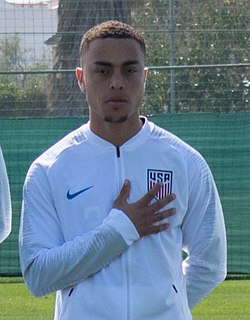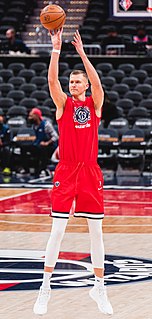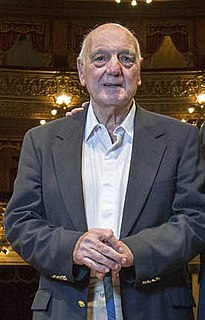A Quote by P. J. O'Rourke
Catchphrases flourish in contemporary American English.
Quote Topics
Related Quotes
Well, English is no problem for me because I am actually English. My whole family are English; I was brought up listening to various forms of the English accent. Obviously there are more specific ones that get a little bit tricky. Same with American stuff. But because in Australia we're so inundated with American culture, television, this that and the other, everyone in Australia can do an American accent. It's just second nature.
The English tourist in American literature wants above all things something different from what he has at home. For this reason the one American writer whom the English whole-heartedly admire is Walt Whitman. There, you will hear them say, is the real American undisguised. In the whole of English literature there is no figure which resembles his - among all our poetry none in the least comparable to Leaves of Grass
I believe it is essential to have English as the official language of our National Government, for the English language is the tie that binds the millions of immigrants who come to America from divergent backgrounds. We should, and do, encourage immigrants to maintain and share their traditions, customs and religions, but the use of English is essential for immigrants and their children to participate fully in American society and achieve the American dream.
I want to say unequivocally that while I cherish every person who comes from anywhere, who comes here legally and seeks to pursue happiness, and I hope all of them decide to stay and become American citizens, but I want them to become American. And part of becoming American involved English. It is vital historically to assert and establish that English is the common language at the heart of our civilization.
What we are learning around the world is that if women are healthy and educated, their families will flourish. If women are free from violence, their families will flourish. If women have a chance to work and earn as full and equal partners in society, their families will flourish. And when families flourish, communities and nations do as well.

































